Just after bonfire night in 1989, Stephen Medcalf, who was tickled by the idea of being photographed at home, wrote to me , ‘I do not promise not to tidy it a bit … a clergyman in Norfolk told me what my room looked like from the way I sat in my chair at breakfast, he said he could see all my books would be ranged round where I could reach out for them without getting up. ‘
Previous occupants at 61, New Road in Lewes, a terraced cottage on the hill just under the castle, had painted a jungle-scape after Le Douanier Rousseau above the front room chimney piece, and Stephen had hung his family portraits against it. After lunch at the Lewes Arms he posed serenely, cross-legged in front of the fireplace and Magus-like on the doorstep. The photographs lay in a drawer until he died in 2007.
Stephen Medcalf (1936-2007), English scholar, academic , bibliophile and mystic, taught at the University of Sussex from 1963 until 2002.
Books were his merchandise and eclectic dog-eared volumes from second-hand bookstalls were his chosen tokens of favour. Here he was in his element, like a troglodyte in his cave camouflaged against tannin-soaked carpets and brown leather bindings.
He said that he would like to have the slogan, ‘THERE ARE NO BORING THINGS ONLY BORED PEOPLE,’ tattoed on his back and chest in red and green and gold and black.
[All images : copyright bibleofbritishtaste.com ]

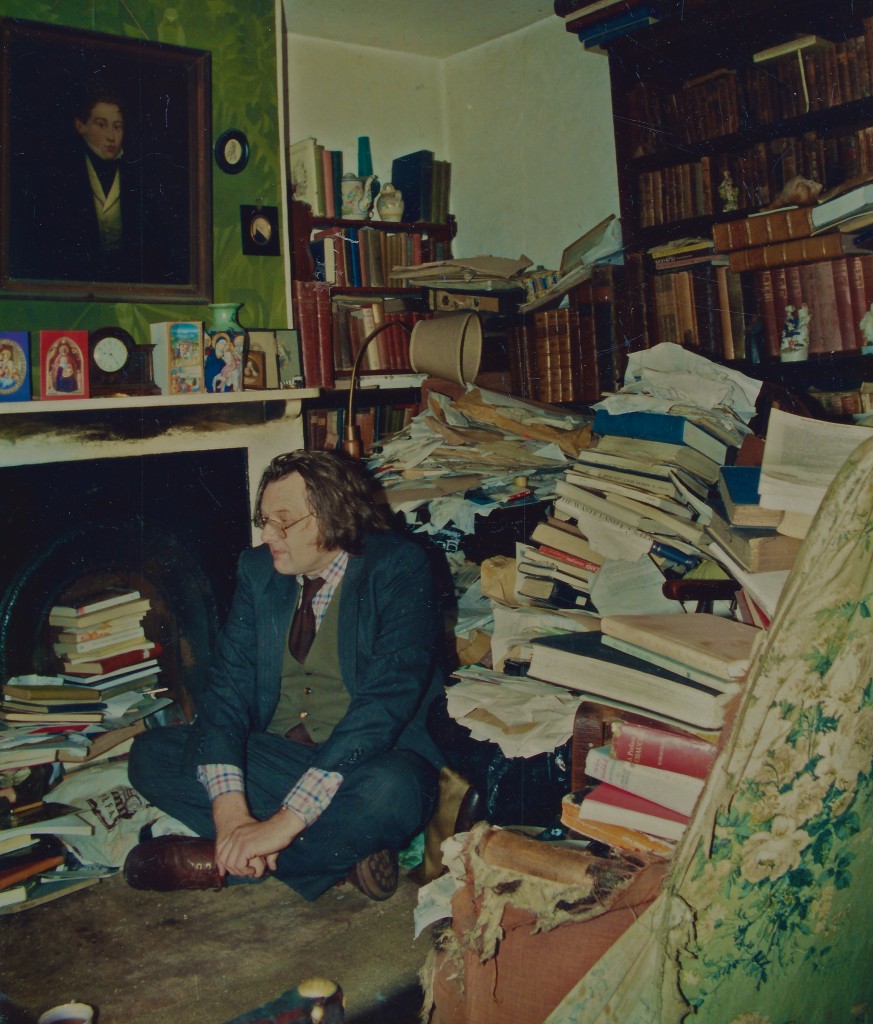
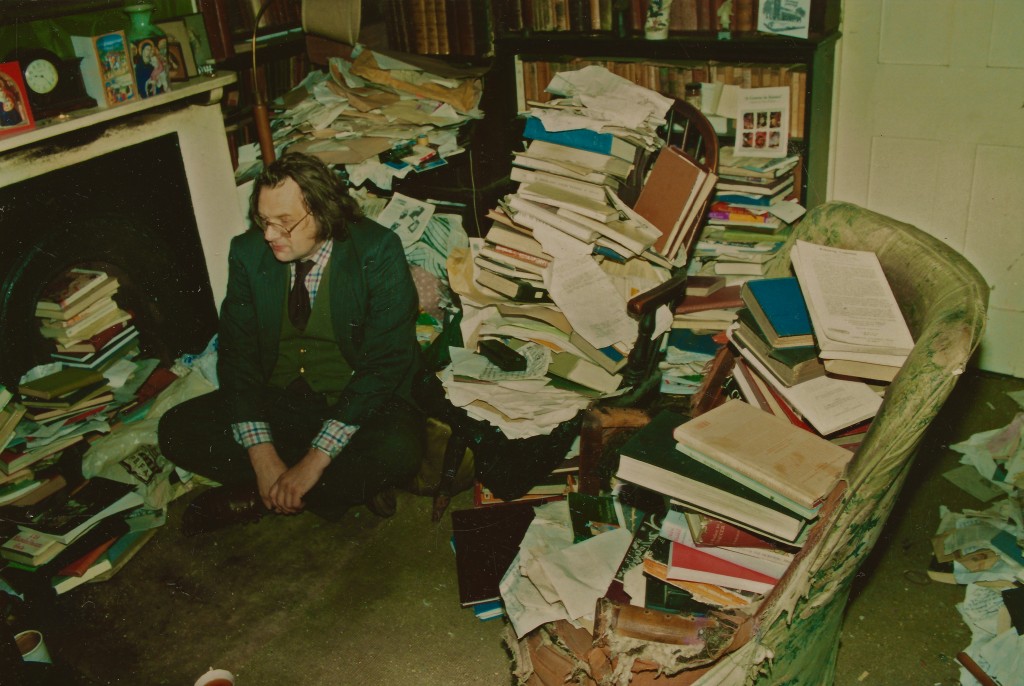
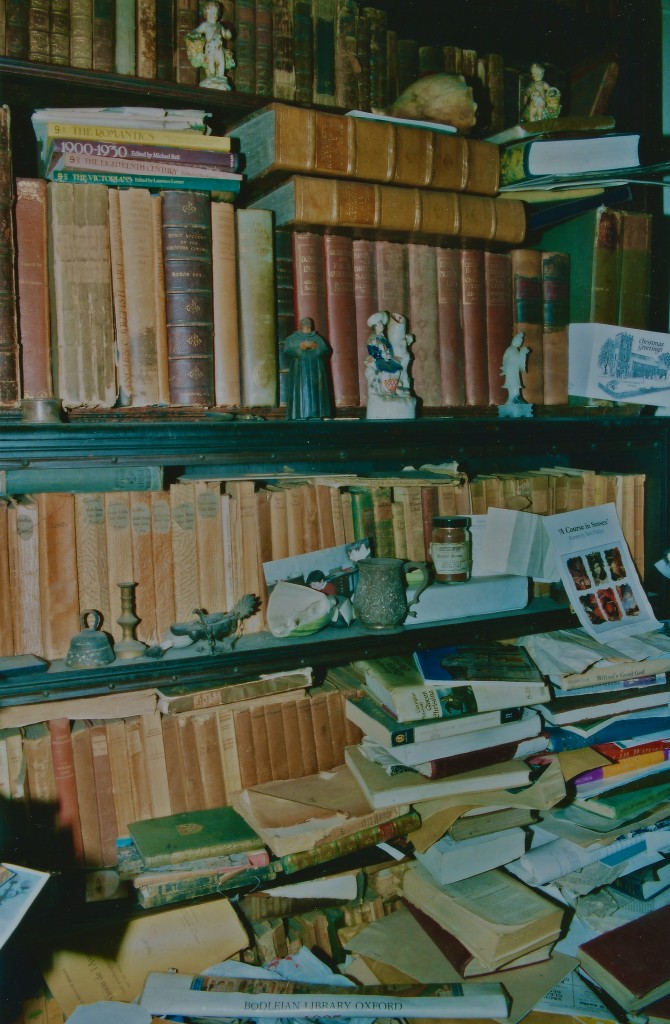
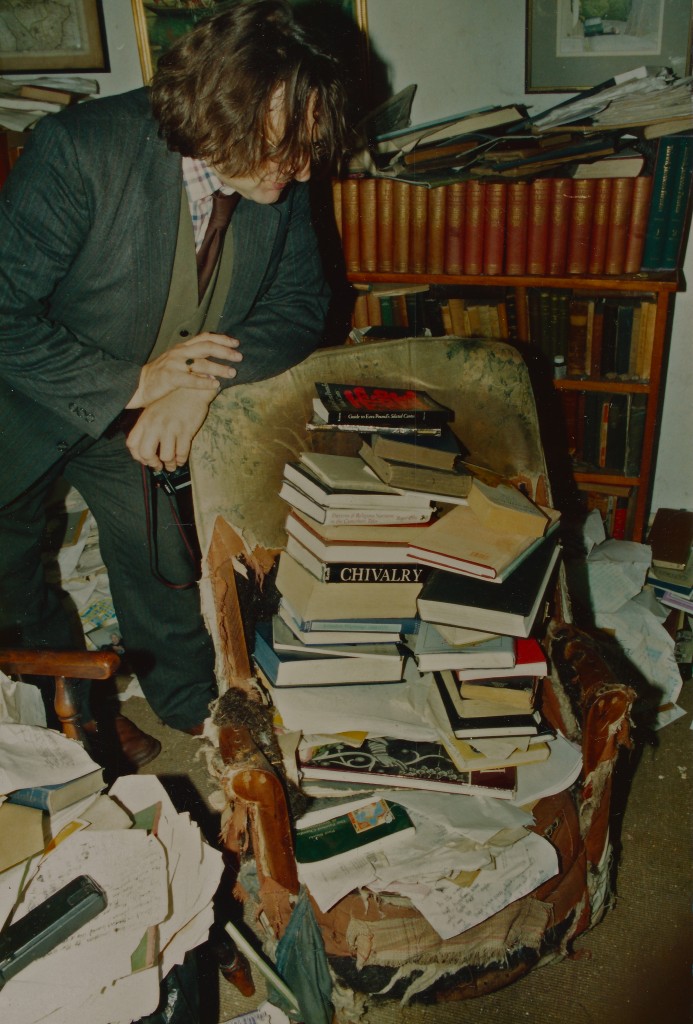
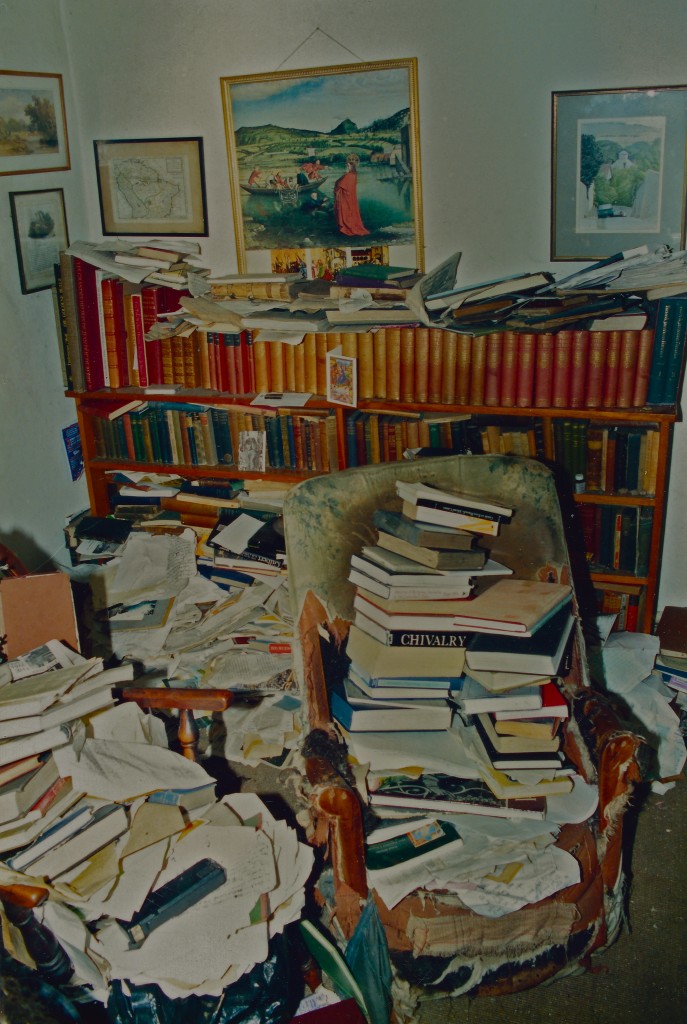
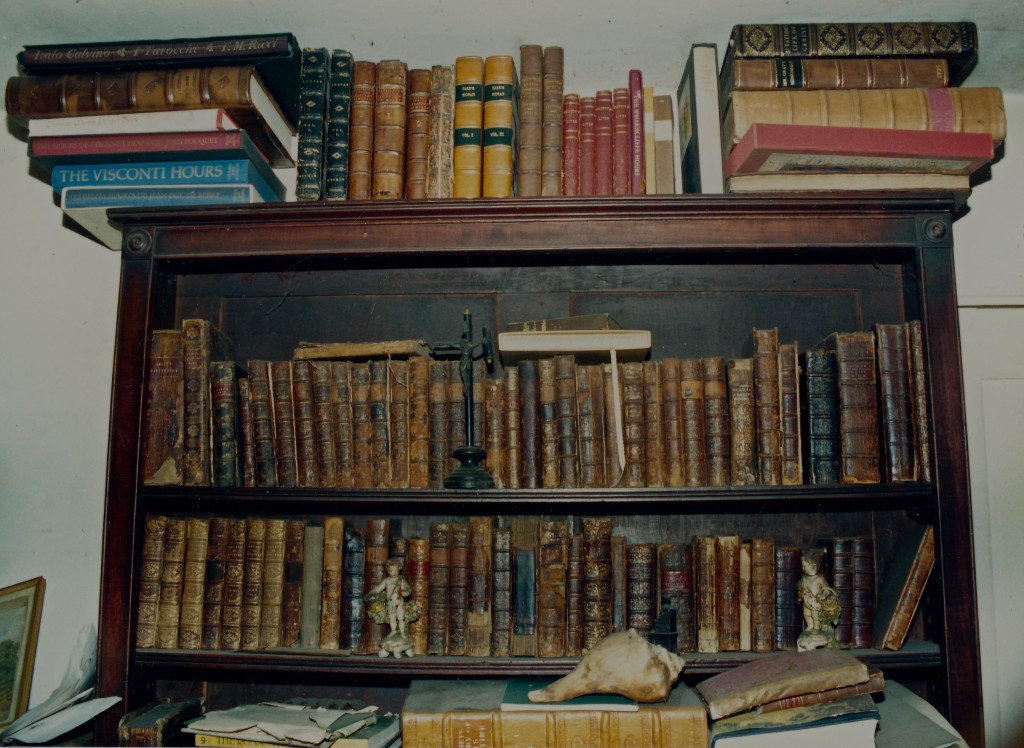
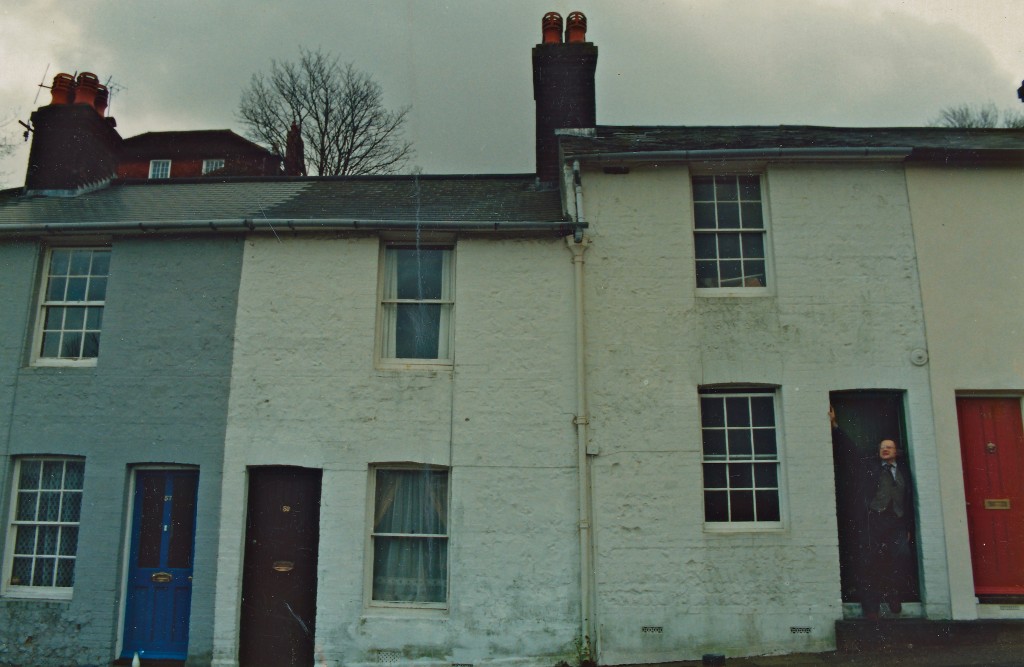
Oh, what an obviously loveable man! Thank heavens you photographed him and I particularly enjoy the fact that he had tidied up.
I was very lucky to be taught by Stephen in the mid-seventies at Sussex, and to visit his shambolic home too. He also came to visit at my home in Devon one summer, when we toured just about every church in the region.
Great to come across this memento.
Those who were taught by Stephen will remember that his room in the (old) arts building at Falmer rapidly took on the quality of his house. He was often invisible behind vast tottering piles of books and papers, from where a steady stream of oracular utterance proceeded. He was a saintly man, though he would have been the first to deny it. I wish I had come to know him again in later life.
The drawers of his filing cabinet were marked “Paper/Paper/Paper”.
My Uncle Stephen and my Godfather. What a character; he would arrive at family gatherings armed with briefcase, usually bulging at the seams with his latest reading material or even something he was probably writing. Now all of his siblings are gone, but what a legacy that our family – despite all of our various sentiments surrounding his personal self care as partly depicted above – will treasure 🙂 Thank you for these images!
True story: I was an English major and U.S. exchange student at University of Sussex in 1988, and in Stephen’s wonderful Medieval literature class. One of the requirements in my study abroad program was to return home with my final graded papers. (You can see where this is heading.) Although I’d turned in a half dozen or so to Stephen during my time at Sussex, he’d never returned one graded back to me. With my time now winding down, I needed them – desperately – and asked Stephen after class if I could swing by his office to pick them up. “Most certainly,” he said. So later that day I went – for the first time ever – to his office. And, as your picture here so wonderfully depicts, is what I so vividly remember: An office stuffed with books and papers, from top to bottom, some even in garbage bags. Sitting behind his desk, barely noticeable behind the clutter and teetering books, Stephen looked up and asked, “Oh yes, remind me why you’re here again?” Wide-eyed, I replied: “Uhh … I need my papers. Graded.” With a broad smile, he came around the desk and then together we sat down on the floor and spent the next hour or so sifting through the detritus. Amazingly, we found every one of them! And, of course, not a single one was graded. Stephen apologized for the oversight and asked for one hour to review; granted, I went away shaking my head thinking this was utterly hopeless. However, when I returned an hour later, my papers had not only been graded but there were extensive, incisive and deeply moving comments written throughout the margins. I was floored. It was truly the case of a beautiful mind! Over 30 years later, still living in America and still a fan of Medieval literature, I remember Stephen’s genius and his generous warm spirit even today. And, of course, I also remember being so very happy at the time to have my papers in hand.